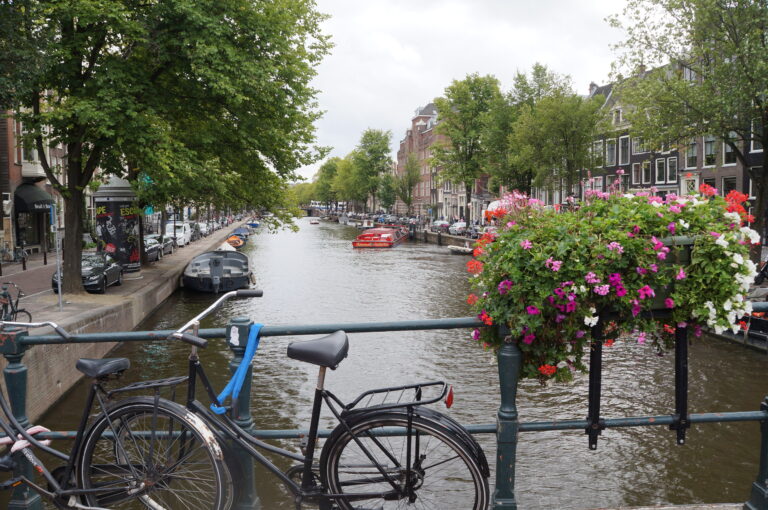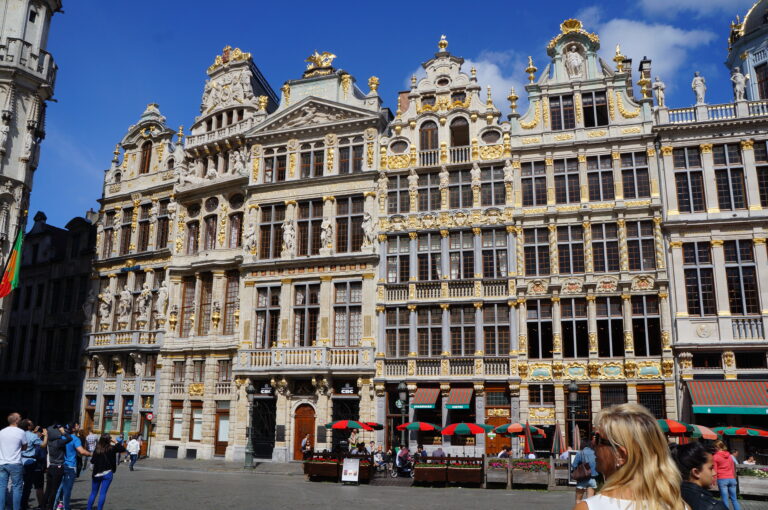How not to get scammed in Europe
The reality of the world is that if someone has money another person will be willing to cheat that person out of it for their own benefit. Being scammed really puts a damper on your trip and in many circumstances ruin your view on the country as a whole. The way scams work is that they rely on a target being ignorant. With knowledge you can better identify when you’re in trouble and allow you to leave the situation with your money and valuables in your possession. Here’s a few popular scams to watch out for:
Ball and Cup Game
This one can be seen all over Europe but specifically London and Paris. How this works is usually a group of men will be playing a game where there will be 3 cups and a ball. The trickster will hide a ball in a cup and move the cups around and ask the customer to guess which cup the ball is in. If they are successful the customer wins. It is usually up to the customer to pick how much they are going to bet. Now here’s the scam. They will make the game look easy; you will see a lot of people winning 50euros non-stop….. but those winners are a part of the scam. When a real customer puts their own money on the line they will turn the heat up and make it really difficult for you to ever actually win or use some other tricks with the cup/ball to make sure you have a zero chance of winning. When police come along, you will see them quickly grab the cups and ball and disperse.
Fake Petition and Donations
Another Paris classic. You will be approached by someone claiming to be with an organisation looking for either donations or to sign a petition. It’s usually pretty easy to tell if these people are legit as their lanyards and signs are pretty crappy looking. They will also approach tourists only and in english, which doesn’t make a lot of sense for petitions for a local issue. If they get a donation from you, it’s going into their pocket. If it’s a petition, be very careful because they work in pairs. Whilst you’re busy writing down your information, someone else has their hands in your pocket or bag.

“Free” bracelets, rosemary, other garbage:
Another classic you will see all over the continent and all slightly different. This one is similar to the CD scam you see in Las Vegas. A “Local” will approach you friendly and say they wish to give you a gift, or sometimes shove something into your hand to hold onto, or start drawing henna on your hand, or wrap a bracelet that you can’t get off. Once you go to walk away they will get aggressive or follow you for an extended amount of time asking for cash. You will become so frustrated or feel guilty that you might grab some coins and give it to them. If you’re in this position, don’t let them get near you. Don’t make eye contact and don’t give in.
Child Beggars
This is sad one you will see all over Europe and we were shocked at the amount of these kids in Crete, Greece. As in Europe you dine out Al Fresco, it gives people the opportunities to come right up to your table and ask for money (or sometimes sell something like a book). A majority of these kids are Roma people (otherwise known as Gypsies). A group leader will arrive with a van of children (seen this happen!), drop them off, and send them into tourist filled areas to get as much money as they can. Once they are done, they will return to the van and give the money back to their group leader and head off home. On average, each gypsy scam can generate up to 300-400 Euros a day from unsuspecting tourists. When approached, just say no or ignore them. They aren’t usually interested to fight with you as they aren’t really in need.
Women with Babies
Similar to the Child Beggars scam above, once a girl has gotten too old to be cute to ask for cash from strangers, they may move into the homeless mother scam. If you don’t fill their cup with cash they may come up to you and beg for cash. The worst part is that it has been known for them to actually have a baby which they will throw into your arms. Whilst you’re too busy trying to give the baby back, they will have people pickpocket you or not take the baby back until you hand over cash too.
Off Meter Taxi
This is a classic taxi move that you will see worldwide. When getting into a taxi they will either agree an extortionate price with you or not run the meter at all, only to give you a high number once you get to your destination. If you’re getting a taxi from a reputable company (quick google), tell them to use the meter. Where possible, book a taxi through you hotel or rely on ride sharing apps like Uber.
Cash Denominations
This one really sucks and it’s easy to mess this one up, especially in currencies where the denominations are high. This is a scam where if you’re paying in cash you will get short changed. So really check to see that you’re given the appropriate amount back. If you call them out on it, they will say “sorry my mistake” and give you what you’re owed. But doing this all day, they come out on top.
Switching Goods
A classic from Morocco and Turkey that has slowly infiltrated the rest of Europe. Let’s say you are looking for a beautiful rug or piece of clothing. You will be shown the best quality good they have, you will be able to feel the quality and see it’s exactly what you’re after. You of course are willing to pay a premium for such a high quality good. Now imagine your surprise when you get home and realize that the item they put in the bag was not the same as what you thought you purchased. They pulled a switcheroo and slipped a poorer quality good into the bag. Make sure you’re checking the bag before you go or better yet don’t lose eyesight of the item you picked up off the shelf.
Quick Tips
- Don’t look lost. If you need to check your map, sit down and pretend you’re just checking your phone. People who approach you sadly don’t always have your best interests in mind. If you need help, approach someone. Don’t let them approach you.
- Be skeptical of anything that requires money. Take the time to think about whether this appears legitimate. Check to see for other tourists doing the same.
- Be prepared to say “No”. Too often you want to be nice. But nice can be targeted.
- Try not to be obviously a tourist.
- Check prices online before to get an idea of what something really costs.
- If it’s a market, haggle.






